Let's continue to explore the interesting topic of 'Tzakonians', and question some of the beliefs regarding their origins and history.
Per author F. Curta, the "Tzakonians" appear to have been settled in the Peloponnesus in the course of the ninth and tenth century. As a result, the evidence seems to be mounting that the "Tzakonians" have no ancient connection and links to Lakonia and the Spartans.
Interestingly, the viewpoint that the Tzakonians were settled in the Peloponnesus, from elsewhere, is also supported and shared by the author Stamatis C. Caratzas: the Tzakonians originate from Macedonia, namely from the area of Chalkidiki peninsula - and specifically, from the vicinity of Mount Athos district (Holy Mountain).
At the time when the "Tzakonians" were moved from Mt. Athos area to Peloponnesus (in the course of the ninth and tenth century), the overwhelming ethnic majority of the area of Mt. Athos, and nearby regions, were Vlach-speakers and Slavic-speakers (there were some Armenians as well, and perhaps others (?), but the ethnic majority were Vlach-speakers and Slavic-speakers).
In summary, the evidence seems strong that the Tzakonians originate from a mix of these populations.
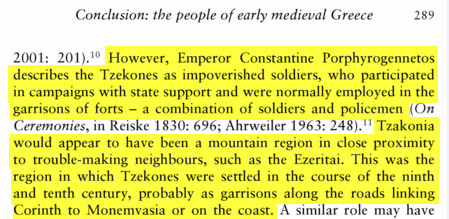
"For the establishment of laiques /laymen on Athos at an even older (or earlier) date, see Uspenskij"
The only laiques/laymen living in this area were Vlachs, Sagoudates, Rynchini.
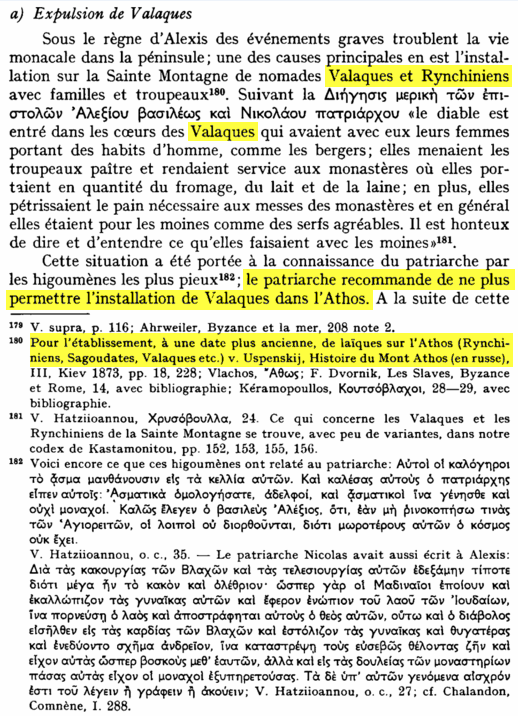
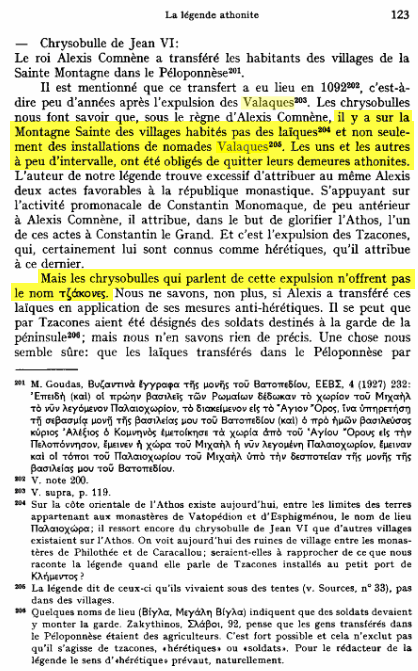
Per author F. Curta, the "Tzakonians" appear to have been settled in the Peloponnesus in the course of the ninth and tenth century. As a result, the evidence seems to be mounting that the "Tzakonians" have no ancient connection and links to Lakonia and the Spartans.
Interestingly, the viewpoint that the Tzakonians were settled in the Peloponnesus, from elsewhere, is also supported and shared by the author Stamatis C. Caratzas: the Tzakonians originate from Macedonia, namely from the area of Chalkidiki peninsula - and specifically, from the vicinity of Mount Athos district (Holy Mountain).
At the time when the "Tzakonians" were moved from Mt. Athos area to Peloponnesus (in the course of the ninth and tenth century), the overwhelming ethnic majority of the area of Mt. Athos, and nearby regions, were Vlach-speakers and Slavic-speakers (there were some Armenians as well, and perhaps others (?), but the ethnic majority were Vlach-speakers and Slavic-speakers).
In summary, the evidence seems strong that the Tzakonians originate from a mix of these populations.

"For the establishment of laiques /laymen on Athos at an even older (or earlier) date, see Uspenskij"
The only laiques/laymen living in this area were Vlachs, Sagoudates, Rynchini.



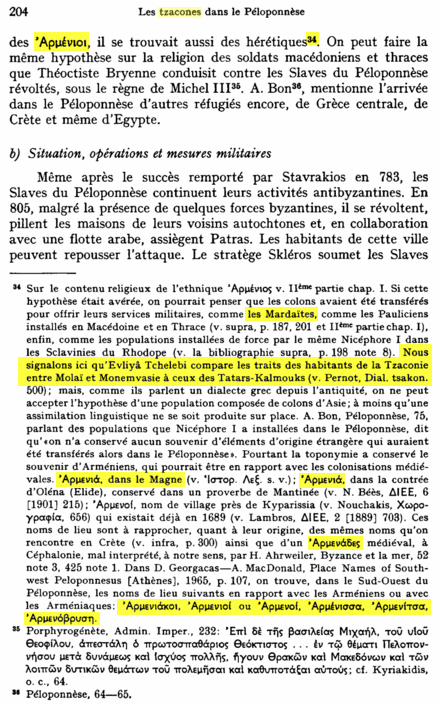
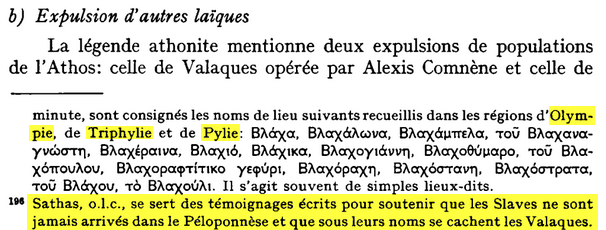
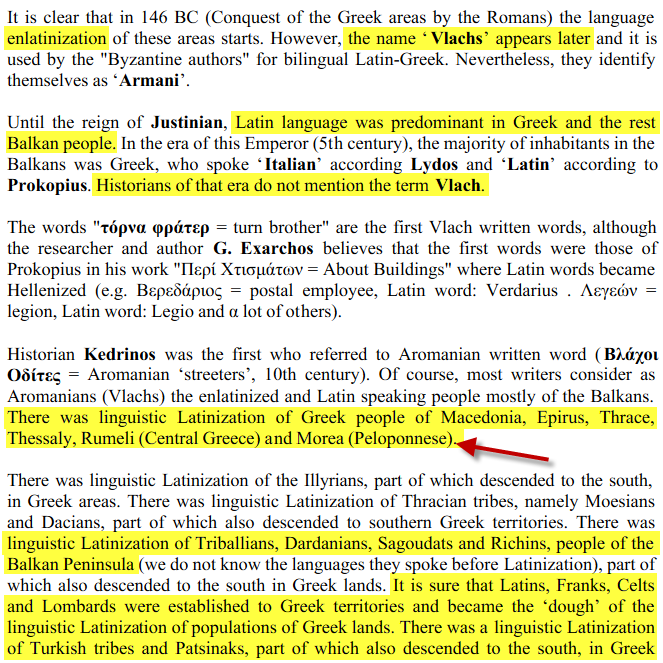





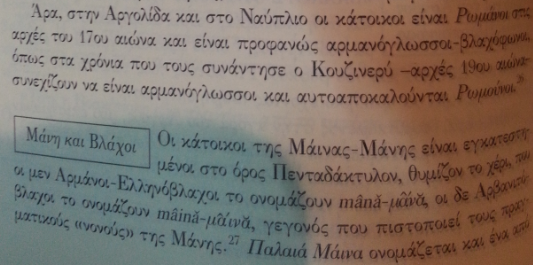
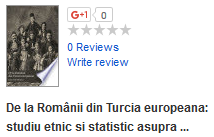
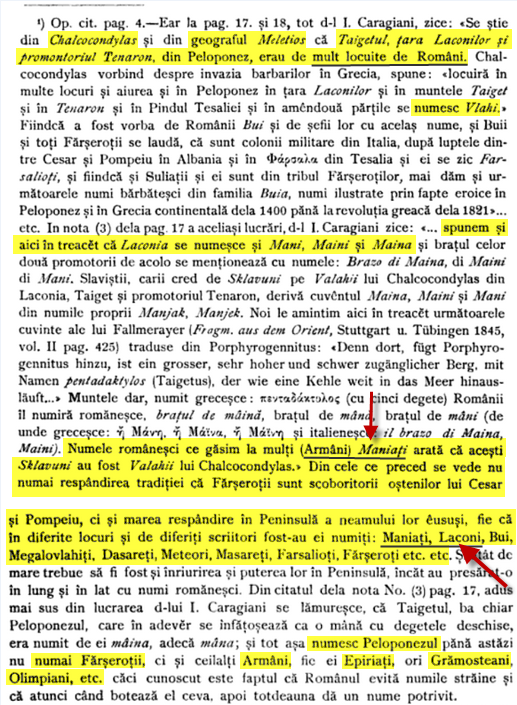
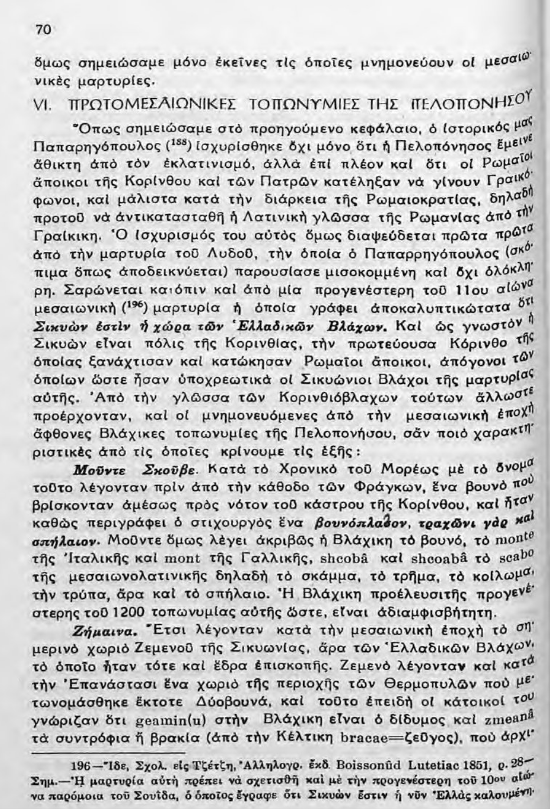
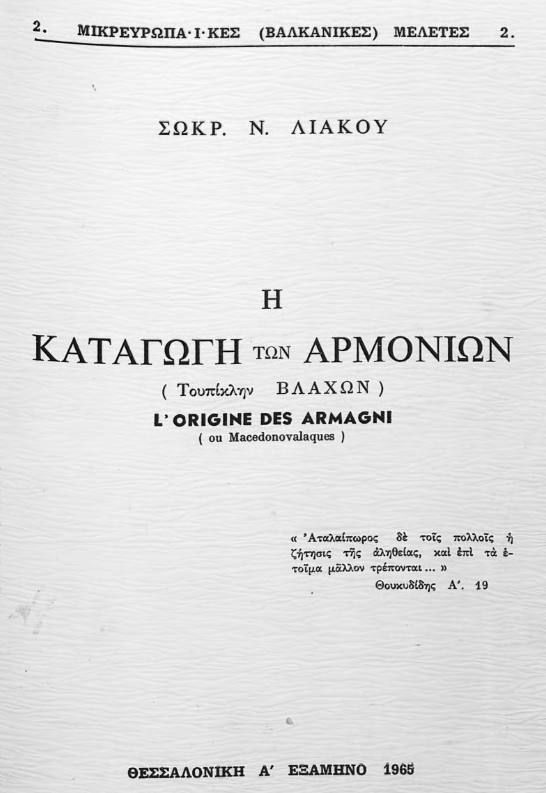

Comment